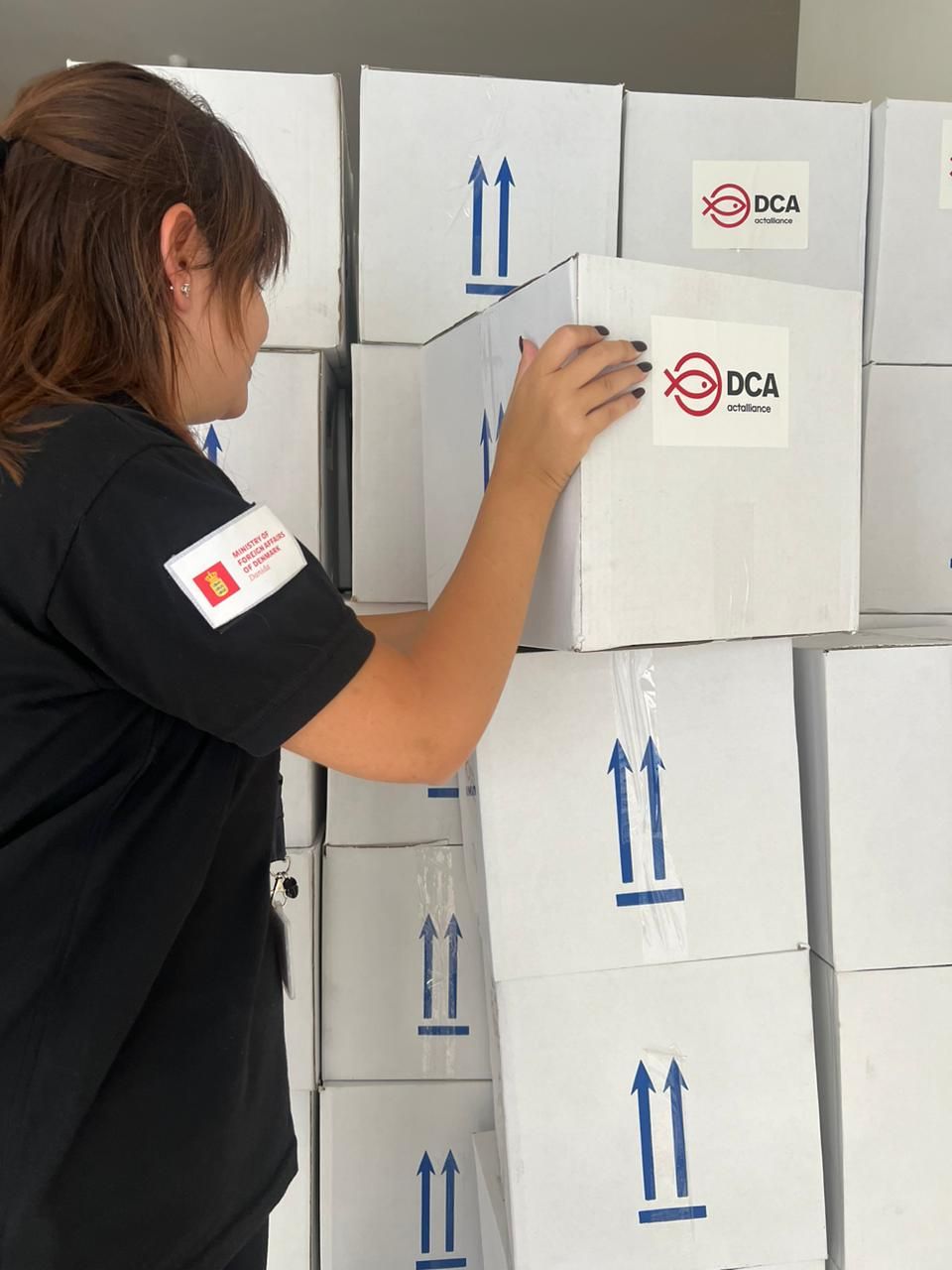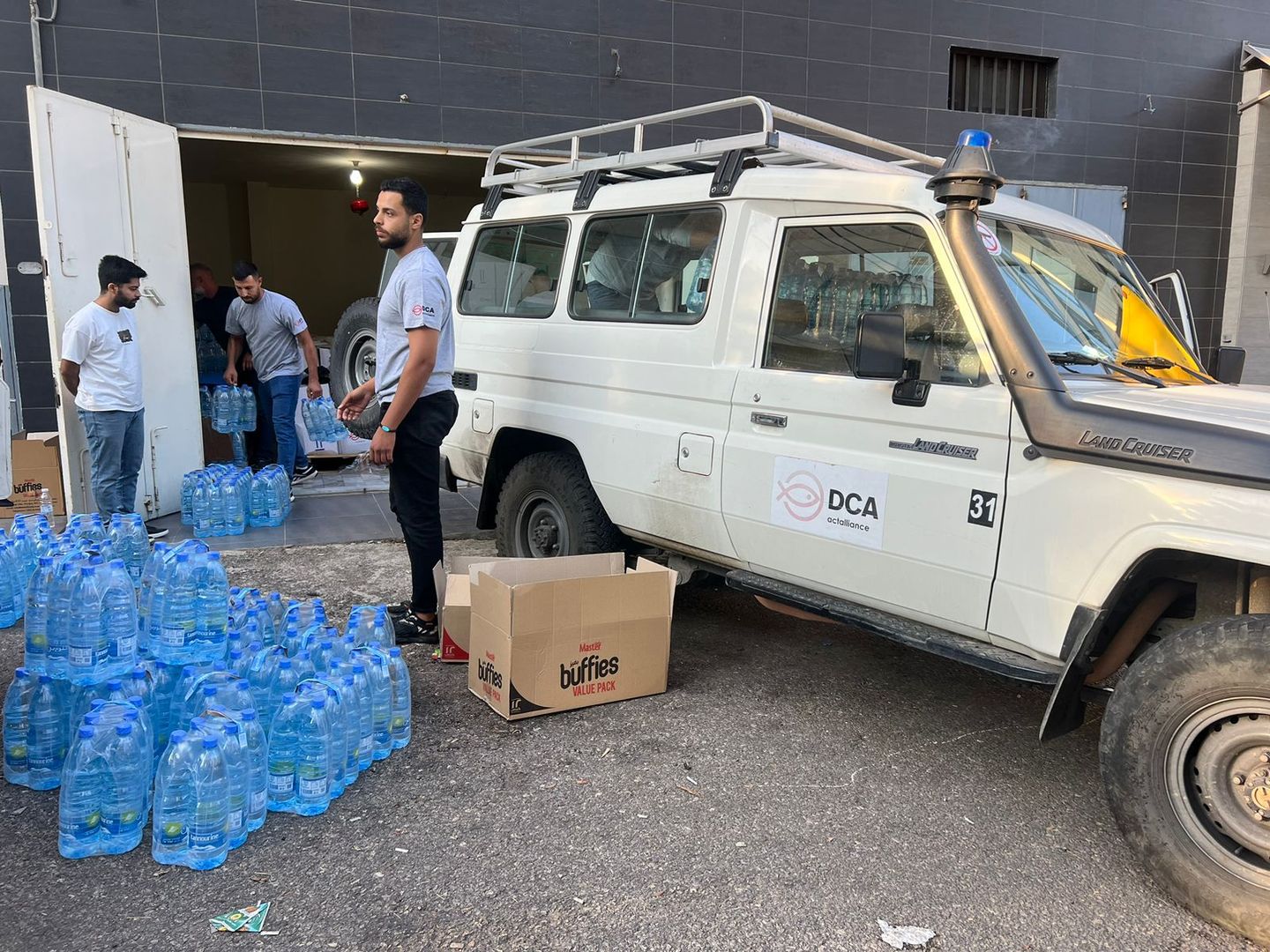After a tense year of exchanging rockets and missiles back and forth across the Israel-Lebanon border, Israel launched a full-scale attack on Lebanon in September 2024. Between September and end of November airstrikes took place throughout the country and entire villages were told to evacuate towards the north of the country. On 27 November a ceasefire agreement came into effect – but a fragile one as Israel continued bombing supposed Hezbollah locations in southern Lebanon and Hezbollah kept bombing Israeli positions in the area.
Some 3,600 people have lost their lives, more than 15,000 have been injured, and one million people have been forced to leave their homes. That is one in five of the population. This also included many of DCA’s staff whose homes are in the Southern part of the country which has been most severely affected.
In response to these needs, DCA converted all activities to support for the many civilians who found themselves sleeping in the open, in schools, or other spaces made available to them – to ensure they had food, water, mattresses, blankets, and other necessities.
This work continues in the relative calm of the ceasefire and DCA is preparing to focus its efforts into clearing areas contaminated by explosive remnants of war as a result of the recent hostilities – to ensure that people who are displaced can return safely to their homes.





You can help this work by donating to our work so we can reach even more people – and offer other types of support needed for people to return to their homes, their lives, and to normalcy.
Donate here
| DKK | EUR* | USD* |
| 150 | 20 | 22 |
| 375 | 50 | 55 |
| 750 | 100 | 110 |
DCA’s Emergency Response – mid-October 2024
Lebanon has been suffering from a pro-longed economical and financial crises, poor service delivery, and poverty levels that have tripled in the last decade reaching some 44% of the population in 2024. In addition Lebanon has been hosting the largest number of displaced people per capita and per square kilometer in the world. According to UNOCHA 9 out of 10 people needed assistance with basic needs before the escalation of the conflict.
The needs in Lebanon are expected to rise drastically as the fighting continues.
Humanitarian situation
- The fatality toll rose to 3,600 people killed and more than 15,000 wounded in total since 8 October 2023 – with the majority of injuries and deaths occurring after 23 September 2024.
- Access to essential services continues to be severely disrupted, damaging critical infrastructure. Since 23 September airstrikes impacted 25 water establishments affecting access to clean water for nearly 300,000 people.
- Over one million people have been displaced – many of them have been displaced multiple times since October 2023. Some 600,000 people are also estimated to have crossed into Syria from Lebanon, as of early December 2024.
- Almost half the population (44%) was already below the poverty line in 2024, many suffering from food insecurity. This crisis is affecting Lebanese citizens along with the hundreds of thousands of Syrian and Palestinian refugees who live in areas under attack and already vulnerable.
- Before the September escalation – on 8 August – 72% of farmers reported loss of income and 1,700 hectares of land have been damaged. This is likely to increase – and further compound – food insecurity.
- Hospitals were operating with only basic necessities even before this crisis and do not have the resources to cope with a large-scale crisis.
- The situation is compounding the pre-existing, multi-layered crises Lebanon has been dealing with—from economic collapse to deteriorating infrastructure. Now, with the country in turmoil, the need for coordinated and immediate humanitarian action is greater than ever.
- DCA staff in Lebanon are on the ground responding and providing aid, closely monitoring the situation and coordinating with other entities responding on the ground.
About DCA Lebanon
DCA has been supporting Lebanese, Palestinian Refugees in Lebanon, Palestinian Refugees form Syria and other refugees since 2007.
DCA works in partnerships with local and national authorities, stakeholders, and national civil society organisations to implement humanitarian and development sectoral programming including:
- ensuring access to water, sanitation and health.
- (monetary) support for communities to help them identify local issues and implement relevant solutions.
- unrestricted cash assistance for displaced people to enable them to buy food and other necessities.
- support for farmers and micro entrepreneurs for improved livelihoods and increased food security.
- … and integrating support to people affected by gender based violence in all our work.
DCA has been responding to humanitarian needs in Lebanon through its Humanitarian Mine Action activities and has cleared over eight square kilometres of landmine-contaminated commercial and agricultural land in Mt Lebanon and along the Blue Line.

